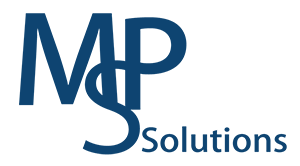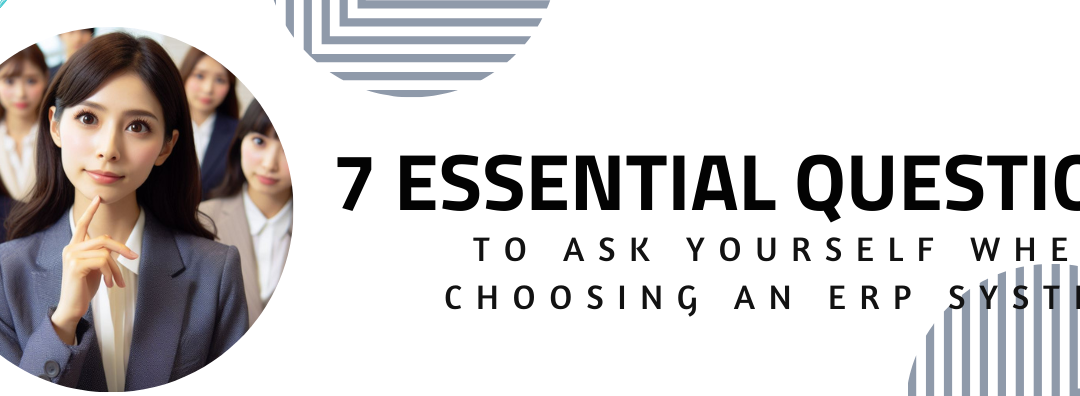In today’s dynamic business landscape, selecting the right Enterprise Resource Planning (ERP) system is pivotal for your organization’s success and growth. With a dizzying array of options available, making the optimal choice can seem daunting. To navigate this process effectively, I’ve compiled a critical checklist of seven essential questions to ask yourself when evaluating different ERP systems:
-
What Are Our Business Goals and Objectives?
Before exploring the bells and whistles of ERP systems, it’s crucial to have a crystal-clear understanding of your organization’s strategic goals and desired outcomes. Identify the specific challenges you aim to address and the positive results you hope to achieve with an ERP solution. Whether it’s streamlining processes, boosting productivity, or enhancing data-driven decision-making, aligning your ERP selection with your overarching business strategy is paramount. Remember, an ERP system shouldn’t just be a tool; it should be a strategic partner driving your future success.
-
What Are Our Core Requirements and Non-Negotiables?
Clearly define your organization’s essential functionalities that are indispensable for your business operations. This could include modules for core areas like finance, human resources, supply chain management, inventory control, customer relationship management (CRM), and more. Prioritize features based on their impact on your business processes and ensure that the chosen ERP system can deliver on these requirements comprehensively and effectively. Don’t settle for an “almost there” solution when it comes to your core needs.
-
Does the ERP System Adapt Seamlessly to Growth and Change?
Consider the ERP system’s scalability and flexibility to accommodate your organization’s inevitable growth and evolving needs. Can it effortlessly adapt to changes in your business size, industry dynamics, regulatory requirements, and technological advancements? A truly scalable and flexible ERP solution ensures that you can expand functionalities, add users, and integrate new modules as your business expands. Opting for a rigid system could impede your future growth potential.
-
What is the Total Cost of Ownership (TCO)?
Evaluate the total cost of ownership associated with implementing and maintaining the ERP system throughout its lifecycle. Look beyond the initial licensing and implementation costs to factor in ongoing maintenance, upgrades, customization, training, and crucial support services. Understanding the TCO empowers you to make informed financial decisions and ensures that the chosen ERP system aligns with your budgetary constraints. Remember, it’s not just about the initial price tag, but also the long-term investment.
-
Does it Integrate Seamlessly with Other Systems?
Assess the ERP system’s ability to integrate seamlessly with your other essential business applications and systems, such as CRM, e-commerce platforms, manufacturing software, and third-party APIs. Seamless integration facilitates data exchange and synchronization across disparate systems, eliminating information silos and providing a unified view of your organization’s operations. Seek out open APIs and pre-built connectors to simplify integration efforts and avoid data fragmentation.
-
What Level of Support and Training is provided?
Investigate the level of support and training offered by the ERP vendor to ensure a smooth implementation and ongoing successful usage of the system. Are comprehensive training resources, documentation, and user manuals available to onboard your team effectively? Additionally, evaluate the vendor’s support services, including response times, troubleshooting procedures, and software updates to address any issues promptly. Reliable support is essential for maximizing the value of your ERP investment and minimizing disruptions.
-
What is the Vendor’s Reputation and Track Record?
Lastly, carefully assess the reputation and track record of the ERP vendor in the industry. Research customer reviews, testimonials, case studies, and industry reports to gauge user satisfaction levels and the vendor’s ability to deliver on its promises. Look for a vendor with a proven track record of successful implementations, ongoing support, and a commitment to innovation. Choosing a reputable and reliable vendor fosters a long-term partnership that fosters success.
By asking these seven essential questions and conducting thorough research, you can make an informed decision when choosing an ERP system that aligns with your organization’s goals, requirements, and long-term growth strategy. Remember, selecting the right ERP system is not just about finding the most feature-rich solution, but about finding the optimal fit for your organization’s specific business needs and future aspirations.


Recent Comments